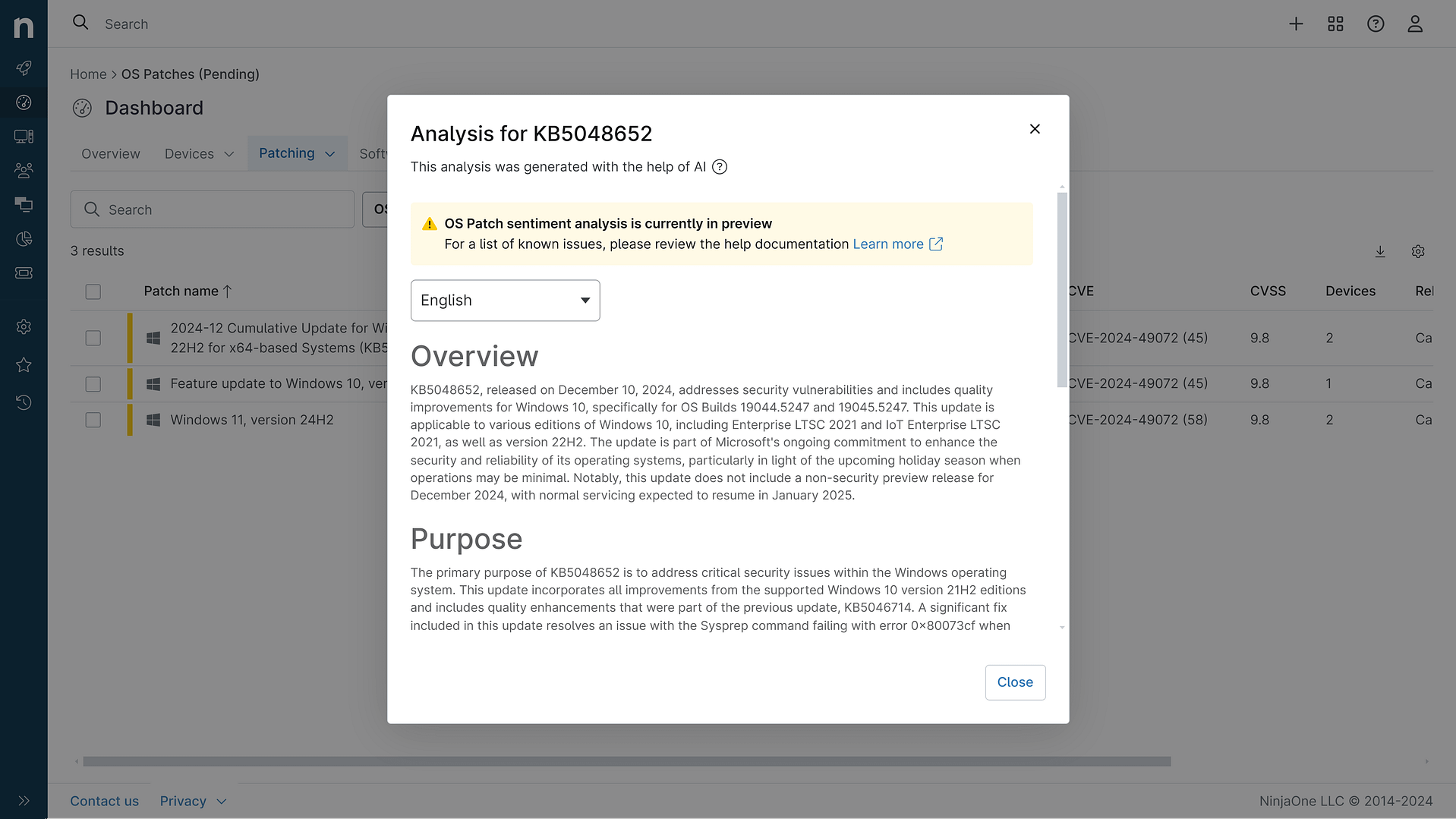KB5039880: Overview with user sentiment and feedback
Last Updated December 21, 2024
Probability of successful installation and continued operation of the machine
Overview
The KB5039880 update, released on July 9, 2024, is a Security and Quality Rollup for the .NET Framework versions 4.6.2, 4.7, 4.7.1, and 4.7.2 specifically for Windows Server 2012. This update is crucial as it addresses a significant security vulnerability identified as CVE-2024-38081, which could allow for remote code execution. In addition to security enhancements, the update also includes various quality and reliability improvements aimed at optimizing the performance of applications built on the .NET Framework. Users are encouraged to integrate this update into their regular maintenance routines to ensure their systems remain secure and efficient.
General Purpose
The primary purpose of KB5039880 is to enhance the security and reliability of the .NET Framework on Windows Server 2012. This update addresses a critical elevation of privilege vulnerability that could potentially be exploited by attackers. Furthermore, it resolves memory leak issues associated with AccessibleObjects in WinForms, thereby improving application performance. The update also emphasizes the importance of having the d3dcompiler_47.dll installed prior to applying this patch, ensuring that all necessary components are in place for optimal functionality. Overall, this update is designed to fortify the .NET Framework against vulnerabilities while enhancing its operational reliability.
General Sentiment
The general sentiment surrounding KB5039880 appears to be mixed but leans towards caution. While many users acknowledge the importance of security updates and appreciate the fixes for memory leaks, there are concerns regarding the breaking changes introduced by the update, particularly related to the System.IO.Path.GetTempPath method. Some users have expressed frustration over the need for additional adjustments to their applications to accommodate these changes. Despite these concerns, the overall consensus is that the update is necessary for maintaining system security, although users are advised to thoroughly test their applications post-update to identify any potential issues.
Known Issues
- The update introduces breaking changes to the System.IO.Path.GetTempPath method, affecting how temporary paths are resolved.
- Users may experience discrepancies in the return values of GetTempPath and GetTempPath2 APIs, particularly between SYSTEM and non-SYSTEM processes.
- A temporary workaround exists to opt-out of the security fix, but Microsoft does not recommend this approach as it may expose systems to vulnerabilities.
Disclaimer: We take measures to ensure that AI-generated content is of the highest possible quality, but we cannot guarantee its accuracy and recommend that users do their own independent research. Generated on 2024-12-21 10:19 PM
